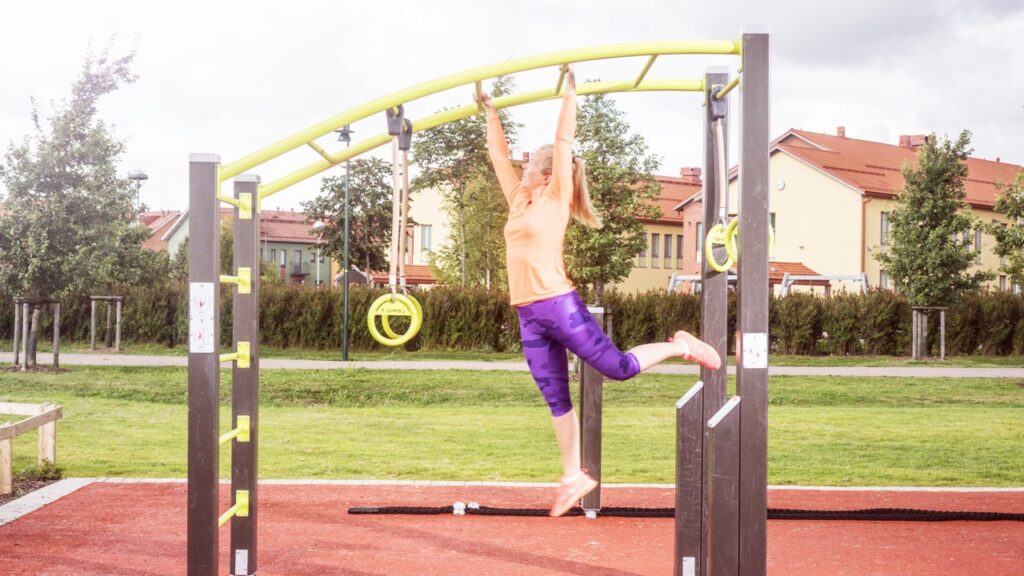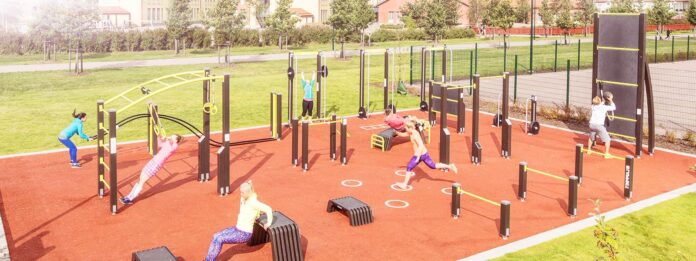
20 best benefits of outdoor exercise
Outdoor exercise offers numerous benefits for both physical and mental health. From hiking to running, swimming to cycling, outdoor activities are a great way to stay active while enjoying the beauty of nature. Here are the 20 best benefits of outdoor exercise.
Vitamin D:
Outdoor exercise provides an excellent source of vitamin D, which is essential for strong bones and teeth. Sunlight is the best natural source of vitamin D, and getting outside for just 15-20 minutes a day can help boost your levels.
Fresh air:
Being outdoors provides fresh air, which is important for maintaining healthy lung function. It can also help to clear the mind, boost energy levels, and promote a sense of well-being.
Natural scenery:
Outdoor exercise allows you to enjoy natural scenery and take in the beauty of the world around you. This can be especially calming and restorative for those who spend most of their time indoors.
Increased endurance:
Outdoor exercise can help increase endurance by challenging your body in new ways. This can include hiking, running, or cycling on hilly terrain, which can help improve cardiovascular fitness.
Improved mood:
Outdoor exercise has been shown to improve mood and reduce stress levels. The combination of fresh air, natural scenery, and physical activity can have a positive impact on mental health.
Increased creativity:
Spending time outdoors can help to stimulate creativity and boost cognitive function. This can be particularly helpful for those who work in creative industries or need to come up with new ideas.
Social interaction:
Outdoor exercise provides opportunities for social interaction and can help foster new friendships. Joining a local running or cycling club can be a great way to meet new people and stay active.
Reduced inflammation:
Studies have shown that spending time outdoors can help to reduce inflammation in the body. This can be particularly beneficial for those with chronic conditions such as arthritis.
Improved sleep:
Exercise has been shown to improve sleep quality, and outdoor exercise can be especially helpful in this regard. Exposure to natural light during the day can help regulate the body’s circadian rhythm and improve sleep patterns.
Improved balance:
Outdoor activities such as hiking and rock climbing can help to improve balance and coordination. This can be especially beneficial for older adults, who may be at risk for falls.
Lower blood pressure:
Regular exercise, including outdoor activities, has been shown to help lower blood pressure levels. This can be particularly beneficial for those with hypertension or other cardiovascular conditions.
Increased strength:
Outdoor activities such as hiking and rock climbing can help to build strength in the legs, arms, and core. This can improve overall physical fitness and reduce the risk of injury.
Weight loss:
Outdoor exercise can be an effective way to lose weight and maintain a healthy body weight. Activities such as hiking and cycling can burn a significant amount of calories, while also providing a fun and enjoyable way to stay active.
Improved immune function: Spending time outdoors can help to boost the immune system by exposing the body to a variety of natural elements. This can help to improve overall health and reduce the risk of illness.
Reduced risk of depression:
Studies have shown that spending time outdoors can help to reduce the risk of depression and other mental health conditions. The combination of exercise and natural scenery can have a powerful impact on mental well-being.
Reduced risk of chronic disease:
Regular exercise, including outdoor activities, has been shown to reduce the risk of chronic diseases such as heart disease, diabetes, and certain types of cancer.
Increased flexibility:
Outdoor activities such as yoga and stretching can help to improve flexibility and range of motion. This can be particularly beneficial for those with joint pain or stiffness.
Reduced stress:
Outdoor exercise can help to reduce stress levels by promoting relaxation and calm.
Improved cognitive function:
Outdoor exercise has been shown to improve cognitive function, including memory and attention span. This can be particularly helpful for older adults who may be experiencing age-related cognitive decline.
Increased self-esteem:
Regular exercise, including outdoor activities, can help to boost self-esteem and confidence. Achieving fitness goals and challenging oneself in new ways can provide a sense of accomplishment and improve overall mental well-being.
In conclusion, outdoor exercise offers a wide range of benefits for both physical and mental health. From improved mood and cognitive function to lower blood pressure and reduced risk of chronic disease, there are countless reasons to get outside and stay active. So, whether you prefer hiking, cycling, or simply taking a brisk walk in nature, make sure to take advantage of the many benefits of outdoor exercise.
get motivated to outdoor exercise
Getting motivated to exercise outdoors can be challenging, especially if you’re used to working out indoors or in a gym. However, there are many ways to get excited about outdoor exercise and make it a regular part of your routine. Here are some tips to help you get motivated:
Find an activity you enjoy:

Choose an outdoor activity that you enjoy, such as hiking, cycling, or swimming. This will make it more enjoyable and less of a chore.
Set goals:
Set goals for your outdoor exercise, whether it’s to climb a mountain or complete a certain distance on your bike. Having a goal to work towards can be motivating and give you a sense of accomplishment.
Join a group:
Joining a group, such as a running or cycling club, can provide accountability and motivation. It can also be a great way to meet new people who share your interests.
Make it social:
Invite friends or family members to join you for your outdoor exercise. This can make it more fun and enjoyable, and provide an opportunity for social interaction.
Focus on the benefits:
Remind yourself of the many benefits of outdoor exercise, such as improved mood, better sleep, and reduced risk of chronic disease. Keeping these benefits in mind can help you stay motivated.
Be prepared:
Make sure you have the right gear and equipment for your outdoor activity. This can include proper footwear, clothing, and hydration. Being prepared can make the experience more comfortable and enjoyable.
Mix it up:
Try different outdoor activities to keep things interesting and prevent boredom. This can include hiking, cycling, swimming, or even just taking a walk in a new location.
Remember, outdoor exercise is not only beneficial for your physical health but also your mental health. It can help reduce stress, improve mood, and provide a sense of well-being. So, get motivated and start reaping the many benefits of outdoor exercise today!
Take advantage of natural scenery:
Outdoor exercise allows you to experience nature and enjoy the beauty of your surroundings. This can be motivating and uplifting, especially if you choose a scenic location.
Increase vitamin D levels:
Exposure to sunlight during outdoor exercise can increase your vitamin D levels, which is important for bone health, immune function, and overall health.
Boost creativity:
Outdoor exercise has been shown to boost creativity and problem-solving skills. This can be particularly helpful for those who work in creative fields or need to think outside the box in their work.
Improve sleep:
Regular outdoor exercise has been shown to improve sleep quality and duration. This can lead to improved energy levels and better overall health.
Save money:
Outdoor exercise can be a cost-effective way to stay active. There are no gym fees or expensive equipment to purchase, and many outdoor activities can be done for free or at a low cost.
Reduce carbon footprint:
Choosing to exercise outdoors instead of driving to a gym or using indoor equipment can reduce your carbon footprint and have a positive impact on the environment.
Build resilience:
Outdoor exercise can help build resilience and mental toughness. Challenging yourself in new ways, such as climbing a steep hill or completing a long-distance hike, can help build confidence and resilience.
Increase social connections:
Outdoor exercise can provide opportunities for social interaction and connection. Joining a group or participating in outdoor activities with friends or family can strengthen relationships and improve social well-being.
Reduce stress:
Outdoor exercise has been shown to reduce stress levels and improve overall mental well-being. Being in nature and experiencing natural surroundings can provide a sense of calm and relaxation.
Improve balance and coordination:
Many outdoor activities, such as hiking or trail running, require balance and coordination. Regular outdoor exercise can improve these skills and reduce the risk of falls and injuries.
Boost energy levels:
Regular outdoor exercise can boost energy levels and reduce fatigue. This can lead to improved productivity and overall quality of life.
Increase happiness:
Outdoor exercise has been linked to increased happiness and well-being. It can provide a sense of joy and fulfillment, especially when pursuing activities that bring you pleasure.
Improve overall quality of life:
Finally, outdoor exercise can improve overall quality of life by promoting physical health, mental well-being, and social connections. It can also provide a sense of purpose and meaning, and contribute to a fulfilling and satisfying life.
Overall, outdoor exercise offers a multitude of benefits for both physical and mental health. From reducing stress and improving mood to building resilience and improving sleep quality, there are countless reasons to make outdoor exercise a regular part of your routine. So, get outside and start reaping the many benefits of outdoor exercise today!

















